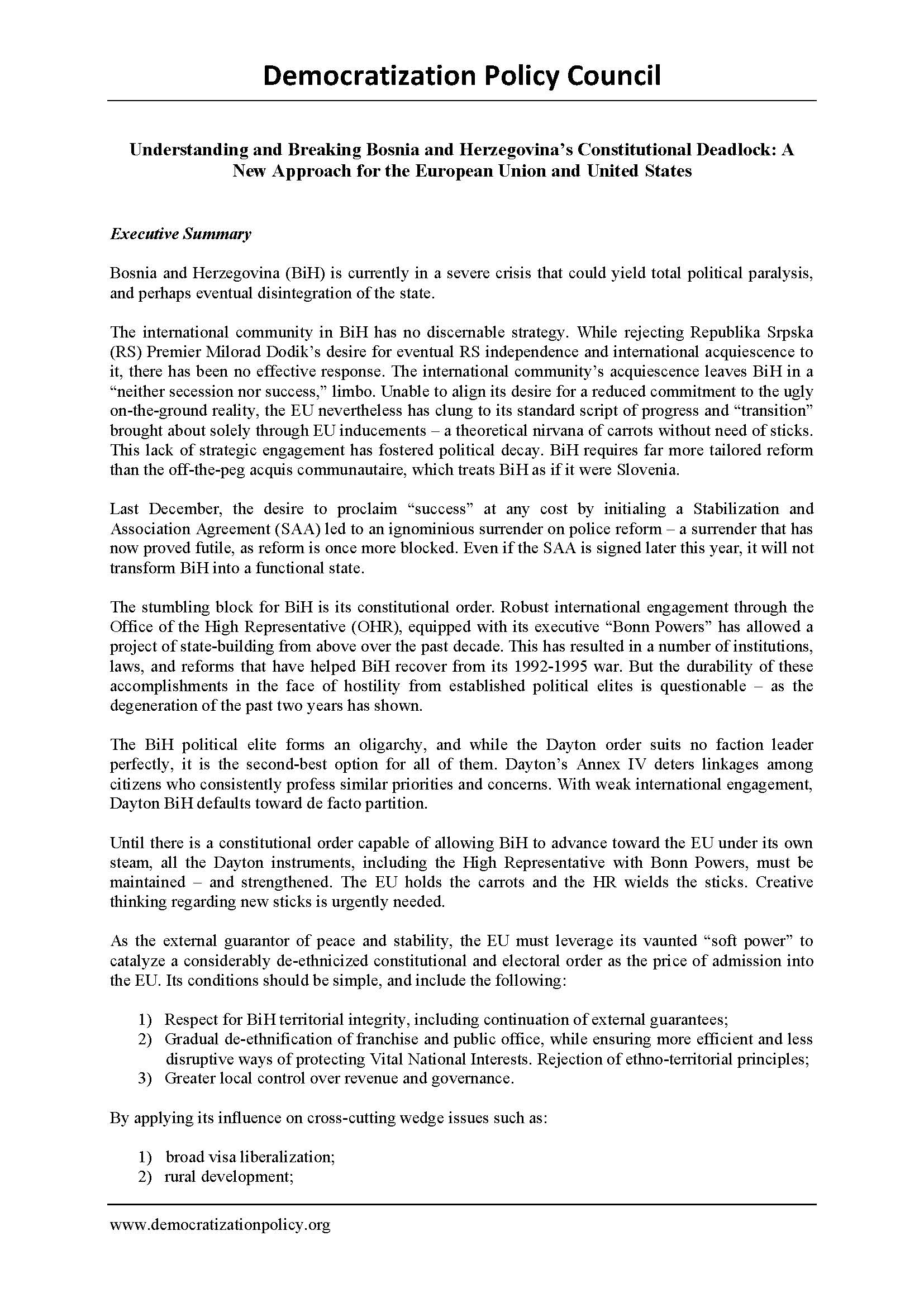№01 Understanding and Breaking Bosnia and Herzegovina’s Constitutional Deadlock: A New Approach for the European Union and United States.
№01 Understanding and Breaking Bosnia and Herzegovina’s Constitutional Deadlock: A New Approach for the European Union and United States.
Author(s): Bodo Weber, Kurt Bassuener
Subject(s): Constitutional Law, Governance, Government/Political systems, Post-Communist Transformation
Published by: DPC Democratization Policy Council e.V.
Keywords: BiH; constitution; Dayton accords; Bonn Powers; Serb Republic; OHR; Milorad Dodik; independence; international community; EU; US; constitutional reform;
Summary/Abstract: Bosnia and Herzegovina (BiH) is currently in a severe crisis that could yield total political paralysis,and perhaps eventual disintegration of the state. The international community in BiH has no discernable strategy. While rejecting Republika Srpska (RS) Premier Milorad Dodik’s desire for eventual RS independence and international acquiescence to it, there has been no effective response. The international community’s acquiescence leaves BiH in a “neither secession nor success,” limbo. Unable to align its desire for a reduced commitment to the ugly on-the-ground reality, the EU nevertheless has clung to its standard script of progress and “transition” brought about solely through EU inducements – a theoretical nirvana of carrots without need of sticks. This lack of strategic engagement has fostered political decay. BiH requires far more tailored reform than the off-the-peg acquis communautaire, which treats BiH as if it were Slovenia. Last December, the desire to proclaim “success” at any cost by initialing a Stabilization and Association Agreement (SAA) led to an ignominious surrender on police reform – a surrender that has now proved futile, as reform is once more blocked. Even if the SAA is signed later this year, it will not transform BiH into a functional state. The stumbling block for BiH is its constitutional order. Robust international engagement through the Office of the High Representative (OHR), equipped with its executive “Bonn Powers” has allowed a project of state-building from above over the past decade. This has resulted in a number of institutions, laws, and reforms that have helped BiH recover from its 1992-1995 war. But the durability of these accomplishments in the face of hostility from established political elites is questionable – as the degeneration of the past two years has shown. The BiH political elite forms an oligarchy, and while the Dayton order suits no faction leader perfectly, it is the second-best option for all of them. Dayton’s Annex IV deters linkages among citizens who consistently profess similar priorities and concerns. With weak international engagement, Dayton BiH defaults toward de facto partition. Until there is a constitutional order capable of allowing BiH to advance toward the EU under its own steam, all the Dayton instruments, including the High Representative with Bonn Powers, must be maintained – and strengthened. The EU holds the carrots and the HR wields the sticks. Creative thinking regarding new sticks is urgently needed.
Series: DEM. POLICY COUNCIL - Policy Briefs
- Page Count: 13
- Publication Year: 2008
- Language: English
- Content File-PDF

